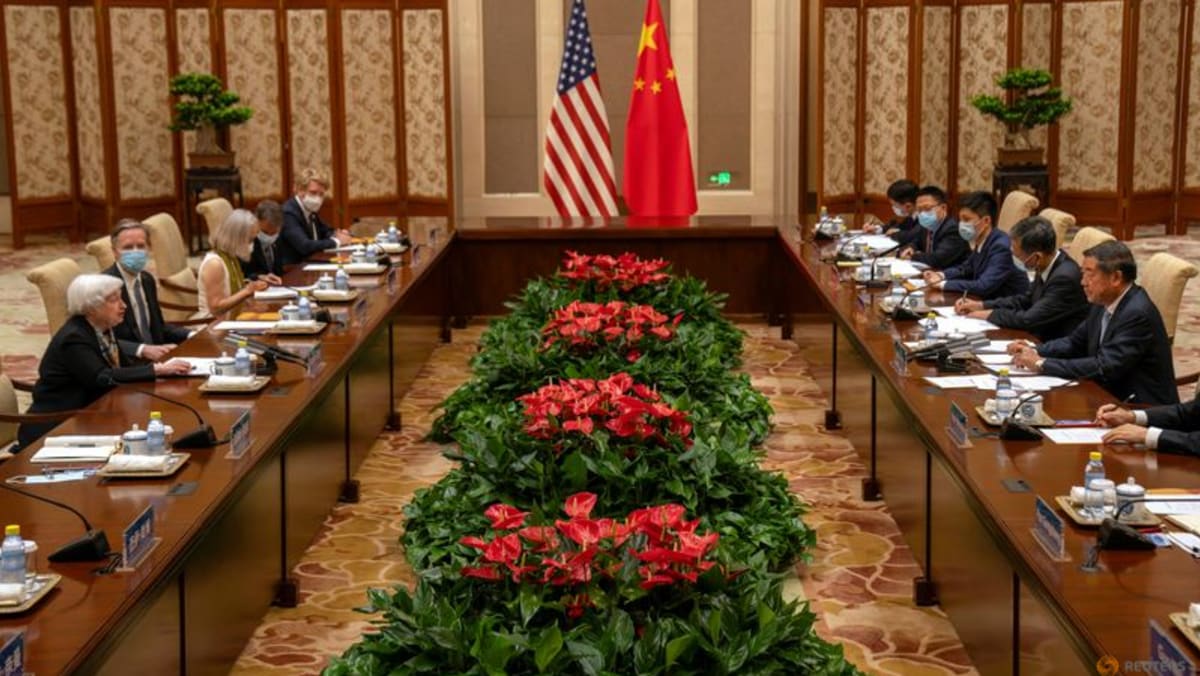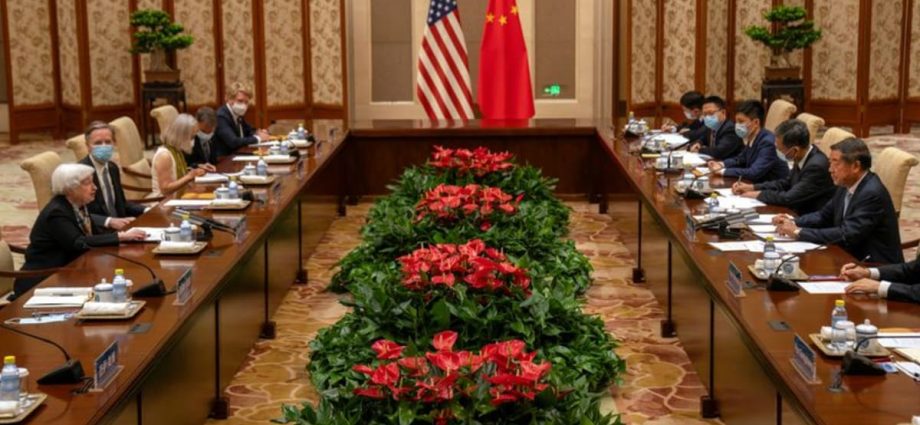
To better understand the situation, a bit of history is in order. From 1979 when China and the US re-established diplomatic ties until the start of the Donald Trump administration in 2017, both countries had largely managed the Taiwan issue well as Washington promised to refrain from official relations and to restrain Taiwan from pursuing independence. Meanwhile, the US continued to sell arms to the island under the Taiwan Relations Act, to which China lodged strong protests but did nothing else.
From China’s view, the relative calm over Taiwan was shattered after Trump launched a trade war against China in 2018 and China hawks in the administration started to play the Taiwan card, sending bilateral ties spiralling.
Joe Biden’s administration continued to play the Taiwan card as senior legislators, including then US Congress speaker Nancy Pelosi and legislators from Europe, visited Taipei and met the Taiwanese president and other leaders.
To Beijing, those visits were a clear breach of bilateral agreements. Biden further muddied the waters by talking at least four times about defending Taiwan while insisting the US does not support its independence.
Moreover, over the past few years, the US has succeeded in internationalising the Taiwan issue, which Beijing considers an internal affair. These developments, in Beijing’s view, have galvanised the pro-independence movement in Taiwan.
Hence, Beijing’s more fevered rhetoric and military exercises are aimed at deterring the pro-independence camp.
If polls are any guide, Taiwanese Vice President William Lai Ching-te, who once called himself a “pragmatic worker for Taiwanese independence”, is the favourite to become president in the election scheduled for next January.

